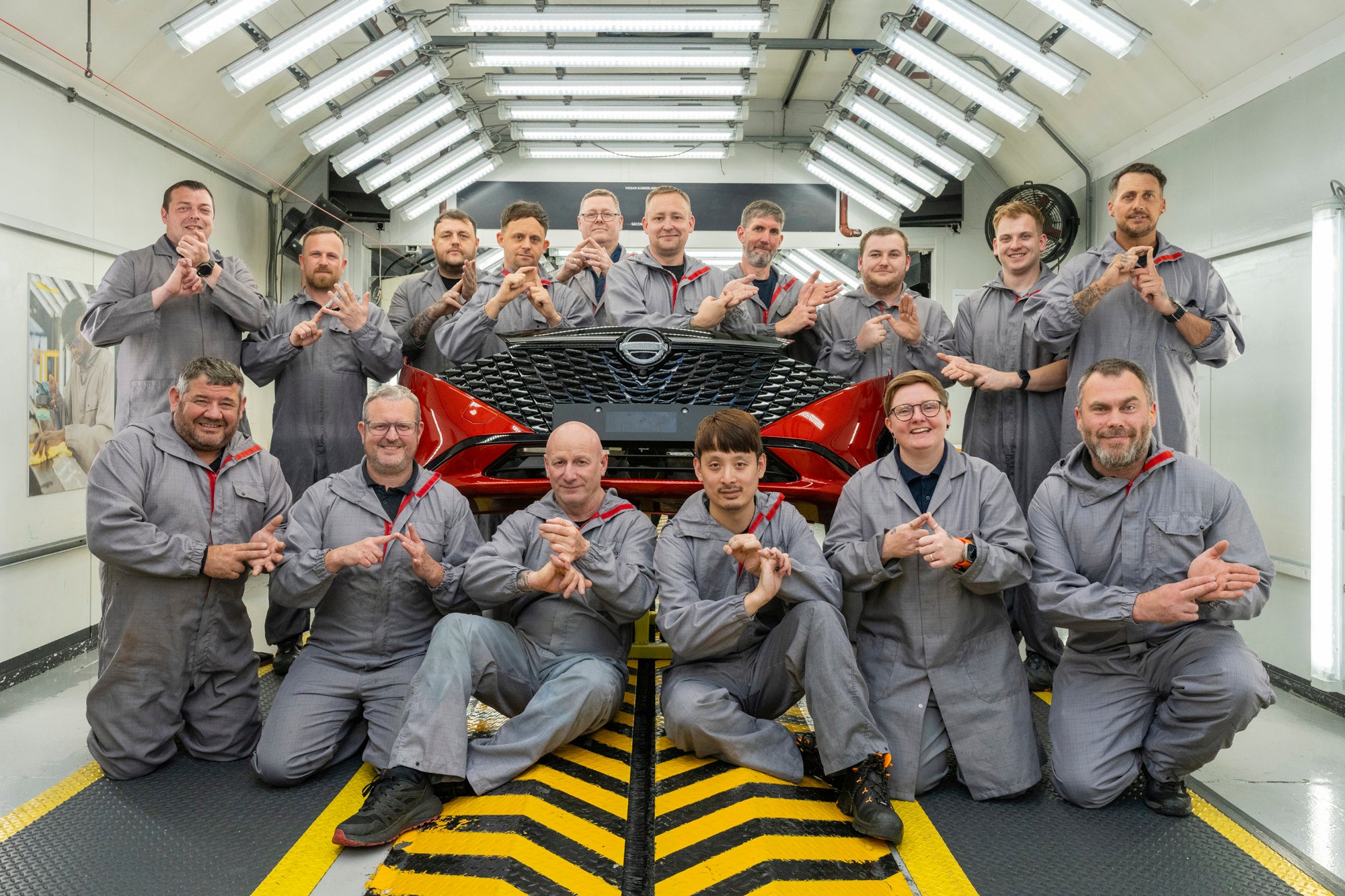Autoworkers learn sign language hoping connection with deaf colleagues improves work and lives
One doesn’t need to know sign language to understand what Michael Connolly feels about his colleagues’ efforts to break down the barriers posed by his deafness

Your support helps us to tell the story
From reproductive rights to climate change to Big Tech, The Independent is on the ground when the story is developing. Whether it's investigating the financials of Elon Musk's pro-Trump PAC or producing our latest documentary, 'The A Word', which shines a light on the American women fighting for reproductive rights, we know how important it is to parse out the facts from the messaging.
At such a critical moment in US history, we need reporters on the ground. Your donation allows us to keep sending journalists to speak to both sides of the story.
The Independent is trusted by Americans across the entire political spectrum. And unlike many other quality news outlets, we choose not to lock Americans out of our reporting and analysis with paywalls. We believe quality journalism should be available to everyone, paid for by those who can afford it.
Your support makes all the difference.One doesn’t need to know sign language to understand what Michael Connolly feels about his colleagues’ efforts to break down the barriers posed by his deafness.
When asked what he thought of his teammates’ decision to learn British Sign Language, the 45-year-old autoworker at the Nissan plant in Sunderland, England, grinned and flashed a universal symbol: Two thumbs up.
Connolly loves having the chance to banter with his workmates, to talk about everyday things — the kids, vacation plans, a TV program. And now he can, because the entire 25-member bumper-paint team at Sunderland started learning BSL at the beginning of the year.
“I’m glad they have all learned sign language for us because I can talk and I lipread the hearing person, but I have my limits,” Connolly signed in an interview with The Associated Press. "If you reverse the situation and the hearing person can sign and speak, they have no limits.’’
The initiative grew out of a broader effort to improve efficiency at the Sunderland plant, which makes Qashqai and Juke sport utility vehicles. While Nissan took steps to overhaul training and increase the use of visual aids during briefings, the bumper-paint team decided to go a step further and learn sign language, said supervisor John Johnson.
Connolly is one of four hearing-impaired people assigned to the team, which works in less bustling area of the plant where it is safer for workers who can’t hear the sound of an approaching vehicle.
Johnson said the thought of mastering the combination of gestures, facial expressions and body language that comprise BSL was daunting. But it helped him understand what life was like for Connolly and the other deaf workers as they tried to learn their jobs and fit into a team without having the ability to share the personal tidbits that build friendships.
“So as a team, we thought how can we knock that barrier down? And obviously sign language was the solution, or at least the start of an opportunity,’’ Johnson said.
The team’s decision is very unusual, said Teri Devine, the associate director for inclusion and employment at The Royal National Institute for Deaf People. While many employers make an effort to reach out and engage with deaf workers, few go as far as learning sign language, she said.
Research shows that many deaf people, particularly BSL users, feel isolated at work, Devine said.
Having more hearing people who understand sign language is important because even the most proficient lip readers will only pick up 30% to 40% of a conversation, she added.
“It’s absolutely crucial that deaf people are included in everyday conversations, and it’s very easy to include them in those conversations,’’ Devine said. “The fact that (workers at) Nissan have gone and learned some BSL to support their colleague is actually fantastic. I take my hat off to them.’’
There are mountains of research showing that kindness in the workplace improves productivity as well as being good for the people with their noses to the grindstone, said Cary Cooper, a professor of organizational psychology and health at the Alliance Manchester Business School, University of Manchester.
You can see that at work on the bumper-paint team, where workers had limited ability to communicate before they learned sign language, Cooper said. But now they’ve created the opportunity for dialogue.
“You can find out: What did you do this weekend? What about the football results,” he said. “In other words, you’re cementing the relationship — the team building. And that’s important. It goes far beyond, you know, ‘you haven’t painted that bit of the bumper.’”